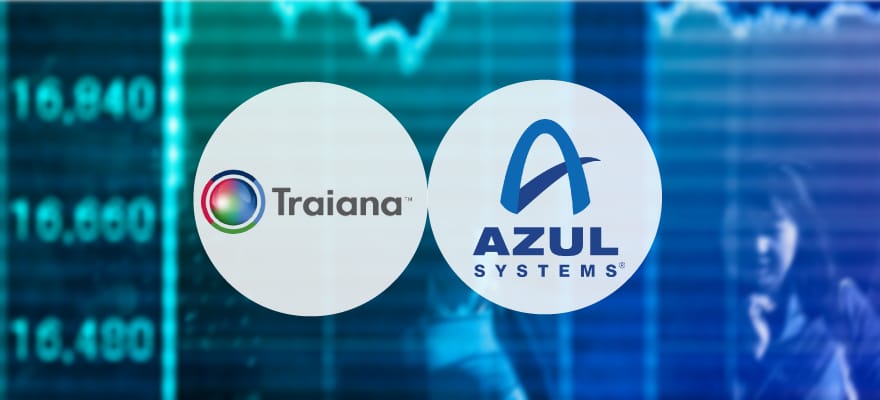In an announcement that should be considered good news for FX prime brokers (FXPB), Azul Systems revealed today that its Zing Java Virtual Machine (JVM) solution has begun to be deployed by Traiana. A JVM, Zing provides solutions to reduce latency of networks that operate using the Java language and process heavy data loads.
According to Azul, Traiana has chosen Zing to be deployed across its entire network to improve efficiency. In the first phase of the integration, Traiana deployed Zing within their CreditLink network, where it has shown a 30% reduction of latency.
Many FXPBs rely on CreditLink to monitor their customer's real-time margin balances and credit allotment
For FXPBs the deployment on CreditLink, and more importantly the improved efficiency, helps reduce vulnerabilities in monitoring pre-trade risk credit risk. The CreditLink network connects to multiple prime brokers, their clients, banks and ECNs providing real-time portfolio balance information. As a result, many FXPBs rely on the real-time data from the network to analyze their customer’s accounts, margin balance and credit allotment. The information is then used to monitor pre-trade risk of their customers and to determine if customers are meeting their Margin Requirements , as well having available credit to open new trades.
With the advancement of high frequency trading (HFT), and traders sending orders to multiple ECNs and banks, any latency in in the CreditLink network poses a problem for FXPBs. If real-time customer balance information is even minutely delayed, there is a risk that their customers may open trades well in excess of their credit allotments. Specifically this is a problem when monitoring HFT customers, where a ‘runaway’ algorithm could send simultaneous error trades and require the account to be locked.
FXPB Credit Contraction
Overall, the difficulties in monitoring pre-trade risk have caused a situation where FXPBs are required to increase their technology budgets to create solutions to monitor their customers, or limit the types of customers they service. The result is that smaller firms that don’t have the large budgets to enhance their technology have begun to assess whether to remain in the FXPB business. As such, the risks of monitoring pre-trade risk has been one of the reasons that the FX industry has seen a contraction of prime brokers servicing the sector. Examples include the exit of Rabobank in 2014, and major FXPBs such as Citi, BaML and Deutsche Bank closing accounts deemed to be high risk following this past January’s Swiss franc Volatility .
While Traiana’s CreditLink is a solution for FXPBs to monitor credit risk, concern within the industry has risen as to whether the technology is robust enough to limit cases of latency in highly volatile markets. As such, this has opened the door for demand of services from other pre-trade risk monitoring services such as FluentTrade Technologies, Portware and Software AG’s Apama that provide customers with internal solutions to monitor their customers.
By partnering with Azul to reduce CreditLink latency and increase its robustness in periods of volatile FX markets, Traiana is addressing a key concern of their FXPB customers. This in turn could lead to greater comfort levels among mid and smaller tier FXPBs to rely on CreditLink for the bulk of their pre-trade risk monitoring needs, allowing them to continue providing prime services in the market.
In the public comments about the news, Scott Sellers, CEO and President of Azul Systems, stated, “Traiana’s decision to utilize Zing as part of its CreditLink infrastructure underscores the importance of using the right JVM for revenue-generating products that require low latency and high scalability."
Nick Solinger, Head of Product Strategy at Traiana, added, “Since Zing has been incorporated into our infrastructure we have seen significant improvements in average latencies. Our development team is particularly impressed in how Zing seamlessly provides immediate latency benefit – this has been achieved with minimal time investment from us and zero changes to existing code.”













